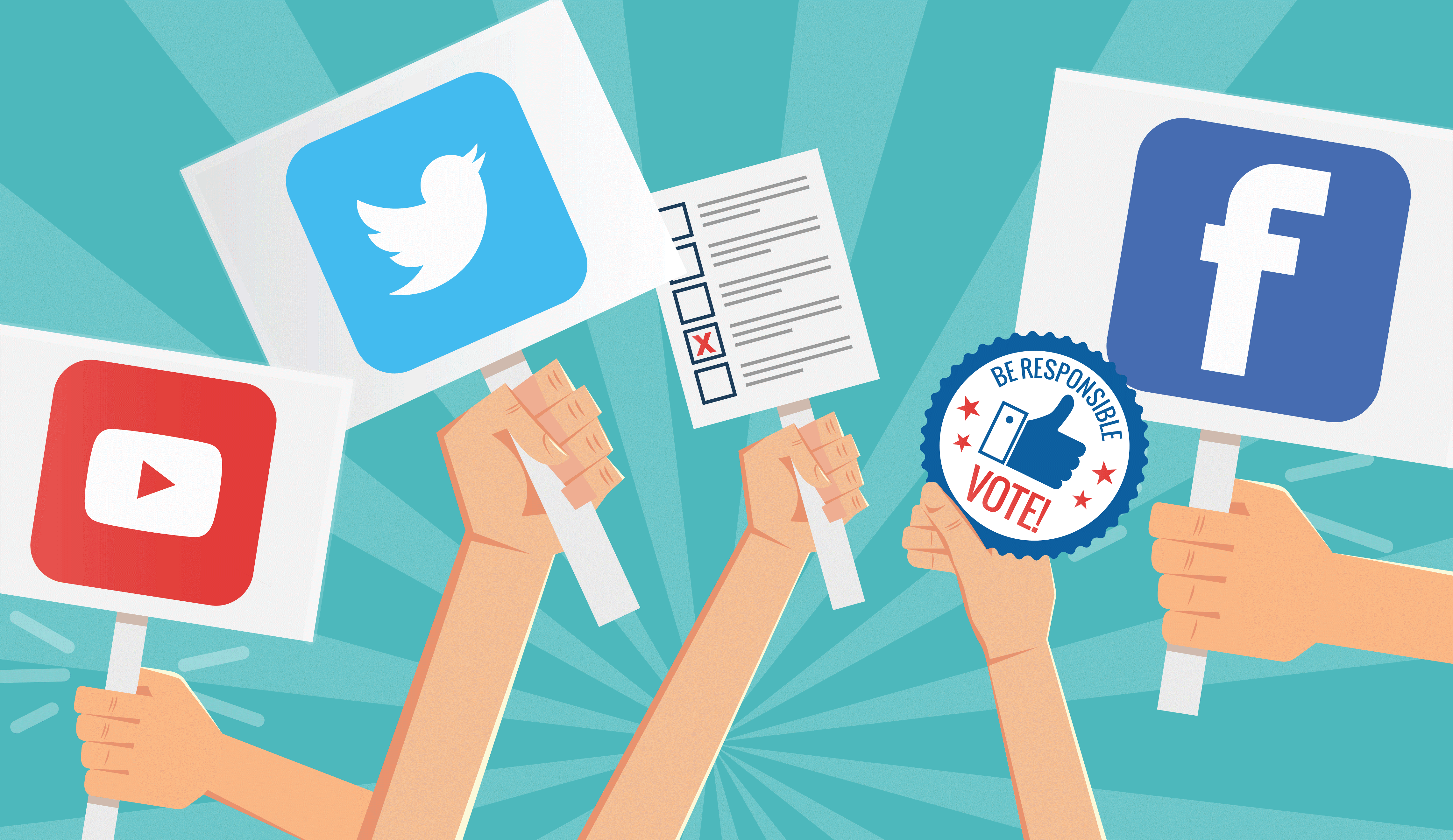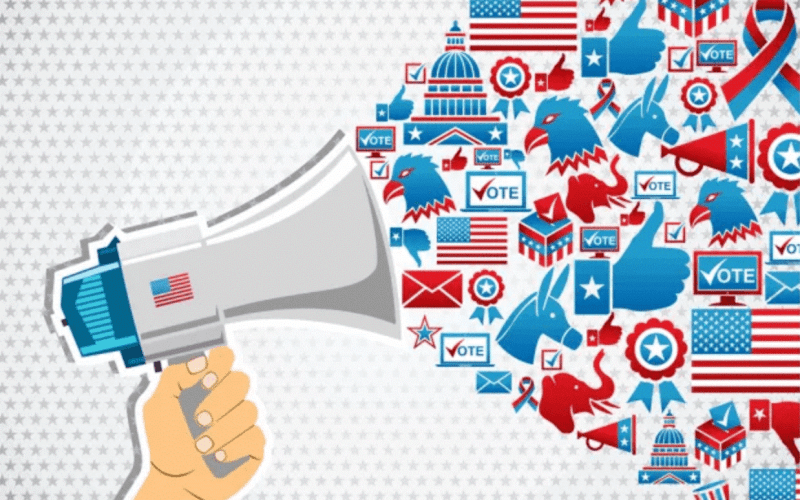In the digital age, social media has become an indispensable tool in political campaigns. Platforms like Facebook, Twitter, Instagram, and TikTok have revolutionized the way political messages are disseminated and how candidates engage with voters. The role of social media in political campaigns is multifaceted, encompassing voter outreach, fundraising, issue advocacy, and real-time engagement. This article explores the various dimensions of social media’s impact on political campaigns, providing an informative overview of its significance.
The Evolution of Political Campaigns
Political campaigns have evolved significantly over the last few decades. Traditional methods such as television ads, radio spots, and direct mail have given way to more dynamic and interactive forms of communication. Social media has emerged as a powerful tool that allows candidates to reach a broader audience more efficiently and cost-effectively.

Voter Outreach and Engagement
One of the most significant advantages of social media in political campaigns is its ability to facilitate direct communication between candidates and voters. Unlike traditional media, which often acts as an intermediary, social media platforms allow candidates to share their messages unfiltered and in real-time. This direct line of communication fosters a sense of intimacy and immediacy, making voters feel more connected to the campaign.
Example: During the 2008 U.S. presidential election, Barack Obama’s campaign effectively utilized social media to mobilize young voters. The campaign’s use of Facebook and Twitter for voter outreach and engagement set a new standard for future political campaigns.
Fundraising
Fundraising is a critical component of any political campaign, and social media has proven to be a game-changer in this area. Platforms like Facebook and Twitter enable campaigns to reach potential donors quickly and efficiently. Crowdfunding through social media allows campaigns to raise small donations from a large number of supporters, democratizing the fundraising process.
Example: Bernie Sanders’ 2016 and 2020 presidential campaigns leveraged social media to raise millions of dollars in small donations. The campaign’s use of social media for fundraising allowed it to compete with more traditionally funded candidates.
Issue Advocacy and Mobilization
Social media is also a powerful tool for issue advocacy and mobilization. Campaigns can use social media platforms to highlight specific issues, share policy proposals, and mobilize supporters to take action. This can include anything from signing petitions to attending rallies and town halls.
Example: The #MeToo movement, which gained momentum on social media, significantly influenced the 2018 midterm elections in the United States. Candidates who aligned themselves with the movement’s goals were able to mobilize a significant base of supporters.

Real-Time Feedback and Adaptability
One of the unique advantages of social media is the ability to receive real-time feedback from voters. This allows campaigns to adapt their strategies quickly based on voter sentiment. Social media analytics tools provide insights into which messages are resonating with voters and which are not, enabling campaigns to fine-tune their approaches.
Example: During the 2016 U.S. presidential election, Donald Trump’s campaign effectively used Twitter to gauge voter reactions and adapt its messaging in real-time. This ability to pivot quickly based on voter feedback was a key factor in the campaign’s success.
The Dark Side: Challenges and Ethical Concerns
While social media offers numerous advantages for political campaigns, it also presents several challenges and ethical concerns.
Misinformation and Fake News
One of the most significant issues is the spread of misinformation and fake news. Social media platforms can be used to disseminate false information quickly, which can influence voter perceptions and decisions. Combating misinformation requires significant resources and poses a challenge for campaigns and social media companies alike.
Example: The 2016 U.S. presidential election saw a significant amount of misinformation spread through social media, leading to widespread concerns about the integrity of the electoral process.

Data Privacy
The use of social media for targeted advertising has raised concerns about data privacy. Campaigns often use data analytics to target specific voter demographics, raising questions about how voter data is collected, stored, and used.
Example: The Cambridge Analytica scandal highlighted the ethical concerns surrounding data privacy in political campaigns. The misuse of Facebook data to influence voter behavior led to increased scrutiny and calls for regulation.
Polarization
Social media can also contribute to political polarization. Algorithms that prioritize engaging content often amplify extreme viewpoints, creating echo chambers where users are exposed only to information that reinforces their existing beliefs. This can lead to increased division and a less informed electorate.
Example: The 2020 U.S. presidential election saw heightened levels of polarization, with social media playing a significant role in deepening the divide between different political factions.

Conclusion
Social media has undeniably transformed the landscape of political campaigns. Its ability to facilitate direct communication, streamline fundraising, and mobilize supporters makes it an invaluable tool for modern campaigns. However, the challenges and ethical concerns it presents cannot be ignored. Misinformation, data privacy issues, and increased polarization are significant drawbacks that need to be addressed.
As social media continues to evolve, so too will its role in political campaigns. Future campaigns will need to navigate this complex landscape carefully, leveraging the benefits of social media while mitigating its risks. The key to successful political campaigns in the digital age will be finding the right balance between innovation and ethical responsibility.












